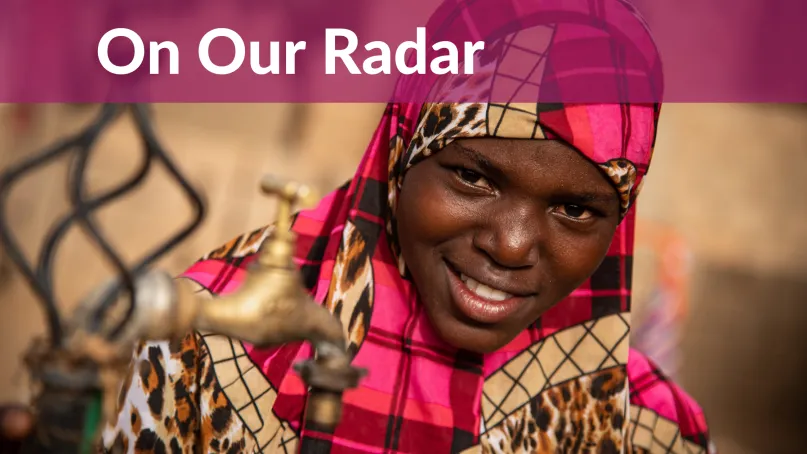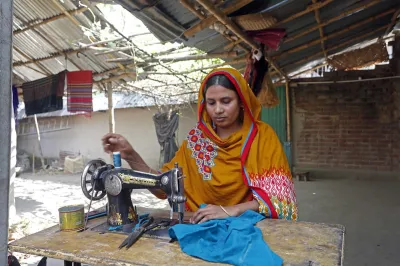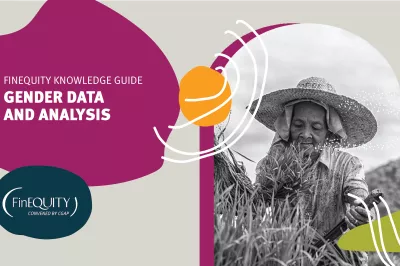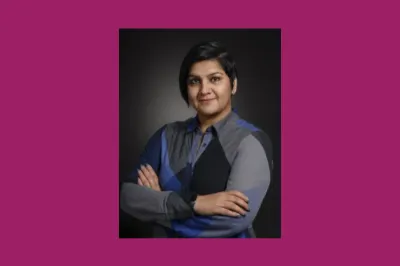On Our Radar: June 2024

An updated take on "What We're Reading". The FinEquity team brings you a curated list of women's financial inclusion and economic empowerment content we've been consuming recently, from podcasts, new initiatives, and articles to videos and social posts.
On Our Radar
How Harmful Gender Norms Encourage Financial Abuse
In this blog, Grameen Foundation Senior Researcher, Bobbi Gray outlines the need to understand the role harmful gender norms play in perpetuating financial abuse. With insight from a recent project Grameen Foundation facilitated in Honduras, along with global research and statistics that reinforce our initiative, Bobbi solidifies the case for how deeply entrenched gender norms lead to financial abuse and result in normalized abusive behavior.
Grameen Foundation Launches Initiative to End Financial Abuse: Program SAFE
Grameen Foundation proudly announces the launch of Program SAFE, an innovative initiative dedicated to safeguarding against financial abuse and ensuring individuals achieve financial security and independence. Recognizing the urgent need to address this critical issue, Grameen Foundation is taking a bold stand with Program SAFE. This comprehensive initiative aims to raise awareness, provide support services, and build a global coalition to safeguard against financial abuse in all its forms.
GSMA – The Mobile Gender Gap Report 2024
Women's mobile internet adoption in low- and middle-income countries has increased, narrowing the gender gap for the first time since 2020. Women are now 15% less likely than men to use mobile internet, with 60% of the 785 million non-users living in South Asia and Sub-Saharan Africa. The smartphone gender gap has narrowed to 13%, but the overall mobile ownership gap remains at 8%. The Mobile Gender Gap Report 2024 details these trends, barriers to access, and the benefits of closing the gap, based on over 13,600 surveys in 12 countries.
Opportunities for Financial Inclusion in Africa – Data From the Global Findex
The Global Findex has published a new series of regional briefs analyzing ten years of financial inclusion progress in Sub-Saharan Africa and highlighting the next opportunities for reaching underserved groups, particularly women. The current series includes a general overview as well as briefs on the impact of mobile money and on financial wellbeing. Forthcoming briefs will highlight the relationship between financial inclusion and access to an ID, and the current state of agricultural payment digitalization.
Breaking Barriers: Harnessing Gender Lens Investments for Sustainable Impact and Inclusive Finance
Despite growing evidence on the business case to invest in women, persistent gender gaps remain in women's ability to access, use, and benefit from financial services. Gender Lens Investing (GLI) is an approach to investing that recognizes these gender-based disparities and directs capital to address them, supporting the social and economic empowerment of women in pursuit of the ethical imperative of gender equity. This webinar recording provides a comprehensive understanding of GLI, its significance, and its ability to drive positive change across sectors and segments.
Which Kind of Microfinance Institutions Can Serve Women Best?
Despite strides in gender equality, women's financial inclusion still faces global challenges. A recent analysis by CGAP and MFR of over 300 microfinance institutions (MFIs) explores which types of MFIs serve women best. Findings show that women, though comprising about half of MFI borrowers, often receive smaller loans, averaging 76% of men's loan sizes. The data suggest a positive correlation between better gender outreach and a range of interrelated factors - institutions that tend to be smaller or are organized as NGOs and those that provide group loans. This blog explores the trends, challenges, and successes in closing the gender credit gap for smaller borrowers and identifies optimal designs for supporting more women clients, more equitably, and in more parts of the world. A more detailed analysis with additional insights can be found in the associated report.
Gender Data and Climate
This playbook is a guide to understanding how climate change affects the lives of different genders and seeks to provide practical tools to address these issues. This playbook aims to empower individuals, communities, and policymakers with the knowledge and resources needed to create more equitable and sustainable solutions for a better future.
Climate Change and Gender
BFA Global has developed a collection of decks on essential topics in climate action and finance, including climate justice, the dynamics of digital and climate finance, and the impact of climate change on gender, among others. This specific deck is designed to inform policymakers, NGOs, development practitioners, gender equality advocates, and organizations focused on social justice, aiming to convey the disproportionate impacts of climate change on women and the need for gender-responsive climate financing. It is also relevant for financial institutions and investors interested in exploring opportunities and strategies for implementing gendered climate finance solutions.


